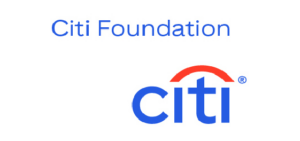Well-Being in the Workplace: Why Financial Health Is Foundational to Overall Well-Being
Each year, employers pour billions into corporate wellness programs with good intentions but shaky outcomes. Is financial health the key to better ROI?
By Matt Bahl, Riya Patil
-
Program:
-
Category:

Building Wellness Programs That Benefit Employers and Workers
Imagine building a house on a foundation of quicksand. Your home would eventually sink into the earth, leaving you with little to show for your investment – a metaphor similar to the state of many corporate wellness programs today.
While businesses invest nearly $90 billion annually in workplace wellness solutions, those solutions aren’t actually improving worker well-being.1 Employees are increasingly burnt out and disengaged, and poor worker well-being is costing American businesses billions in lost productivity.2 But it doesn’t have to be this way.
Growing evidence shows what does work to support worker well-being: tailored benefits that improve their financial health.3 In a new brief from the Financial Health Frontiers initiative, we explore why today’s workplace wellness programs aren’t achieving their aims – and what employers stand to gain from ensuring their workforce is financially secure.
The Hidden Costs of a Financially Unhealthy Workforce
Despite the breadth and investment in wellness program offerings, burnout, financial precarity, and mental health challenges continue to escalate across the workforce. These challenges carry significant costs for employers, and directly influence one of the top concerns among America’s business leaders: employee productivity.4 Ultimately, the mismatch between investments in wellness solutions and outcomes raises a crucial question: Why aren’t workplace wellness programs performing better?
85%
of large employers offer workplace wellness programs.5
Nearly 60%
of workers are experiencing workplace burnout.6
Only 31%
of employees are engaged, the lowest level since 2014.7
$8.8 trillion
globally in annual costs to businesses from lost productivity, absenteeism, illness, and other wellness-related factors.8
Financial Health: The Real Foundation of Worker Wellness and Business Performance
An emerging body of evidence suggests the key to better outcomes may lie in reprioritizing where employers place their investments.9 Many buzzy benefits center on interventions that aim to change individual employee behaviors, like well-being apps to support mindfulness, or financial education programs that help people save and invest. These types of individual-level solutions often focus on the symptoms of poor well-being, but fail to address root causes. Recent research suggests that focusing on solutions that address root causes can be more effective than focusing on treating individual-level symptoms.10
This is not to say individual-level solutions have no place in a broader wellness strategy. But it is possible that individual-level solutions are most effective only if employees already have a relatively stable financial base.
Case Study: PayPal and the Financial Wellness Initiative11
PayPal saw turnover at its customer service centers fall from 19.4% in 2019 to 7.3% in 2020 following the launch of its innovative Financial Wellness Initiative. Learn more about PayPal’s strategy, outcomes, and business benefits in the full brief.
Next Steps for Employers
The more people feel equipped to handle their finances, the more likely they are to report higher levels of overall well-being and engagement.12 Improving the financial well-being of workers also delivers financial benefits to employers, who are hemorrhaging billions of dollars a year in lost productivity.13
By building overall well-being programs on a foundation of employee financial health, we believe employers can stem the tide of increased burnout, declining engagement, rising financial precarity, and concerns over low productivity and its myriad ill effects.
-
- Impact-based benchmarks: By including more impact-based metrics – such as living wage data – employers can start to better assess the effects their wages and benefits may have on their employees’ lives.
- Outcomes over inputs: The average employer has 22 programs offering more than 50 types of benefits.14 Focusing on outcomes and not inputs – like the number of programs offered – can help organizations prioritize their spend on solutions more likely to move the needle.
- New assessment frameworks: What are the essential benefits workers need to achieve financial stability? These are among the frontier questions shaping the future of workplace financial and overall well-being.
About Financial Health Frontiers
Supported by the Citi Foundation, Financial Health Frontiers is an ambitious initiative that aims to identify the needs, challenges, and opportunities for the next era of financial health. Guided by an Advisory Council of industry experts, business leaders, policymakers, advocates, and researchers from across the country, the Frontiers initiative asks: What are the trends that will most influence financial health over the next generation? How can we harness them for greater and more equitable financial health? Who is not at the table now but has a critical stake in the financial health movement?
Financial Health Frontiers is grateful to the visionary members of its Advisory Council for their input and guidance:
Naomi Camper, Chief Policy Officer, American Bankers Association
Kelvin Chen, Senior EVP and Head of Policy, Consumer Bankers Association
David Clunie, Principal and Head of Community Relations, Edward Jones
Dr. Tamarah Duperval-Brownlee, Chief Health Officer, Accenture
Anne Evens, CEO, Elevate
Maria Flynn, President & CEO, Jobs for the Future
Jonay Foster Holkins, Founder, Trendline Strategies LLC
Abby Hughes Holsclaw, Senior Director, Asset Funders Network
Gigi Hyland, Executive Director, National Credit Union Foundation
Gary Koenig, Vice President, Financial Security, AARP Public Policy Institute
Laura MacCleery, Senior Director, Policy & Advocacy, UnidosUS
Racheal Meiers, Senior Director, Community and Social Health, Kaiser Permanente
Harold Pettigrew, President & CEO, Opportunity Finance Network
Leigh Phillips, President & CEO, SaverLife
Nasir Qadree, Founder and Managing Partner, Zeal Capital Partners
Ida Rademacher, Vice President and Co-Executive Director, Financial Security Program, Aspen Institute
Cy Richardson, Senior Vice President for Programs, National Urban League
Kareem Saleh, Founder & CEO, FairPlay AI
Kristen Scheyder, Senior Vice President, Citi Foundation
John Soroushian, Senior AI Advisor, FinRegLab
Jennifer Tescher, President and Chief Executive Officer, Financial Health Network
Erin White, Senior Director, Corporate Initiatives, Business Roundtable
Thank you to the many Financial Health Network staff who supported the creation of this publication.
- “Corporate Wellness-Global Market Trajectory & Analytics,” Global Industry Analysts, Inc., 2022.
- “2025 Employer Health Care Strategy Survey,” Business Group on Health, 2024; Jim Harter, “U.S. Employee Engagement Sinks to 10-Year Low,” Gallup, 2025; “Mental Health, Brain Health, and Substance Use,” World Health Organization, 2022.
- Mathieu Despard, “Promoting Staff Financial Well-Being in Human Services Organizations: The Role of Pay, Benefits and Working Conditions,” Human Service Organizations: Management, Leadership, & Governance, Sept 2023; Barry Gerhart & Meiyu FangGarhart, et al., “Pay, Intrinsic Motivation, Performance, and Creativity in the Workplace: Revising Long-Held Beliefs,” Annual Review of Organizational Psychology and Organizational Behavior, January 2015; Gretchen V. Lester, Meagan E. Brock Baskin, & Mary S. Clinton et al., “Employer-Sponsored Benefits in the United States: The Past, Present, and Future,” Compensation & Benefits Review, August 2020; E. Kevin Kelloway, Jennifer K. Dimoff, & Stephanie Gilbert, “Mental Health in the Workplace,” Annual Review of Organizational Psychology and Organizational Behavior, November 2022; Cynthia Lee, Guo-Hua Huang, & Susan J. Ashford et al., “Job Insecurity and the Changing Workplace: Recent Developments and the Future Trends in Job Insecurity Research,” Annual Review of Organizational Psychology and Organizational Behavior, 2017; Steven H. Woolf et. al, “How Are Income and Wealth Linked to Health and Longevity?,”, Urban Institute, April 2015.
- Dr. Molly Sands, “3 challenges executives face and how to solve them,” Atlassian, 2024.
- Karen Pollitz & Matthew Rae, “Trends in Workplace Wellness Programs and Evolving Federal Standards,” Kaiser Family Foundation, 2020.
- “2023 Work in America Survey,” American Psychological Association, 2023; “U.S. Employee Engagement Sinks to 10-Year Low,” Gallup, 2025; “Stress in America,” American Psychological Association, last updated October 2024; “Financial Health Pulse® Research 2024,” Financial Health Network, 2024.
- “2023 Work in America Survey,” American Psychological Association, 2023; “U.S. Employee Engagement Sinks to 10-Year Low,” Gallup, 2025; “Stress in America,” American Psychological Association, last updated October 2024; “Financial Health Pulse® Research 2024,” Financial Health Network, 2024.
- Ibid.
- William J. Fleming, “Employee well-being outcomes from individual-level mental health interventions: Cross-sectional evidence from the United Kingdom,” Industrial Relations Journal, January 2024; Gordon M. Sayre, G. M., & Samantha A. Conroy, S. A., “The other side of the coin: An integrative review connecting pay and health,” Journal of Applied Psychology, 2024; J. Paul Leigh & Juan Du, et al., “Effects Of Minimum Wages On Population Health,” Health Affairs, October 2018.
- Ibid.
- Zeynep Ton & Sarah Kalloch, “PayPal and the Financial Wellness Initiative,” MIT Sloan School of Management Case Study, August 2022.
- William J. Fleming, “Employee well-being outcomes from individual-level mental health interventions: Cross-sectional evidence from the United Kingdom,” Industrial Relations Journal, January 2024; Gordon M. Sayre, G. M., & Samantha A. Conroy, S. A. “The other side of the coin: An integrative review connecting pay and health,” Journal of Applied Psychology, 20243; J. Paul Leigh & Juan Du, et al., “Effects Of Minimum Wages On Population Health,” Health Affairs, October 2018.
- “2023 Work in America Survey,” American Psychological Association, 2023; “U.S. Employee Engagement Sinks to 10-Year Low,” Gallup, 2025; “Stress in America,” American Psychological Association, last updated October 2024; “Financial Health Pulse® Research 2024,” Financial Health Network, 2024.
- “2023 Hot Topics in Employer Wellbeing,” Alight Solutions, 2023.
Written by
Well-Being in the Workplace: Why Financial Health Is Foundational to Overall Well-Being
Explore the trends. Discover new insights. Build stronger strategies.


